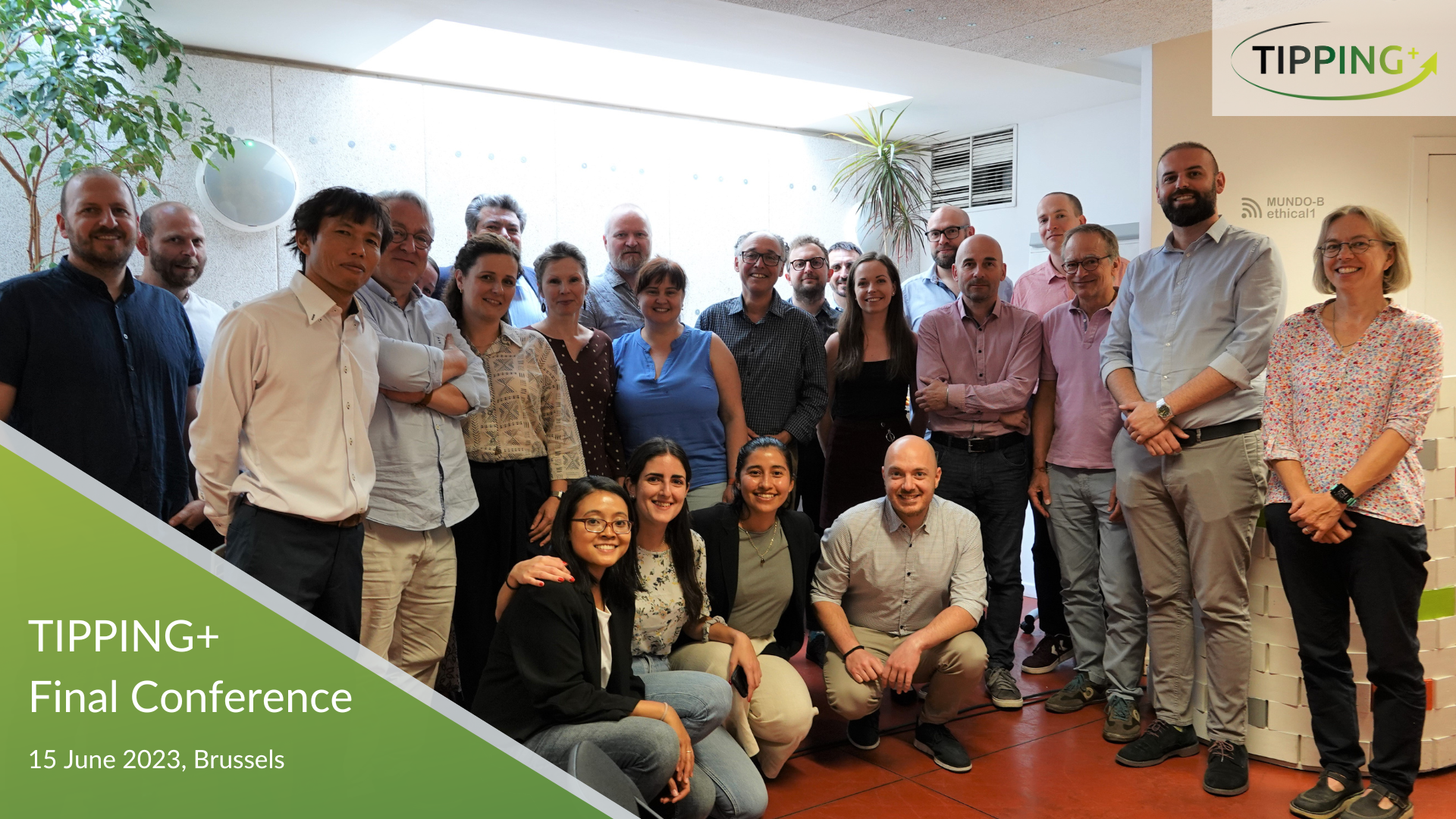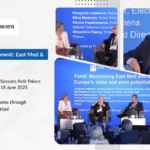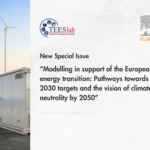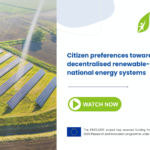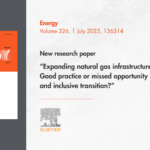The Horizon 2020 funded TIPPING+ project organised its final conference on Thursday 15th of June in Brussels. During the last three years, the TIPPING+ project has explored the critical concept of tipping points to improve our scientific understanding and policy implications of deliberate rapid decarbonisation processes in CCIRs. Using the insights of over 20 case studies in Europe and elsewhere, it has identified the types of enabling conditions, narratives and dynamics leading to just regional transitions and systemic transformations across different domains and scales.
The objective of the final conference was to gather experts and researchers in the fields of energy transition, social sciences and policymaking and discuss the main challenges and opportunities of enabling just energy transition in CCIRs. The Conference was divided into three sessions: 1. How to accelerate just sustainable structural change in Coal and Carbon Intensive Regions in times of global uncertainties?, 2. What is the role of civil society and non-state actors in accelerating just decarbonisation in CCIRs? and 3. Research-for-policy needs for sustainable regional decarbonisation.
The presentations focused on showcasing the key findings of the TIPPING+ case studies that examine the tipping points that could accelerate just transition in coal intensive regions. Tipping points refer to the thresholds that occur when, at one point, a small additional change, deliberate intervention or event provokes a self-propelling process of profound qualitative change in a system of reference. However, tipping points never occur from a single action but may emerge from the combination of many previous trends, actions and changing conditions whose cumulative effects eventually lead to a new structural configuration.
After presentations, participants expressed their questions to the speakers and engaged in discussions about how to advance sustainable development and energy transition towards the community of these regions. In particular, emphasis was given to the impact of the energy transition in the citizens, the role of non-actor agents and the civil society to accelerate decarbonisation and the importance of engaging policymakers and researchers to achieve changes and enable tipping points in the sustainability of these regions.
The research questions that were examined during the project are expected to continue to interest energy transition experts to create new ideas and collaborations.

